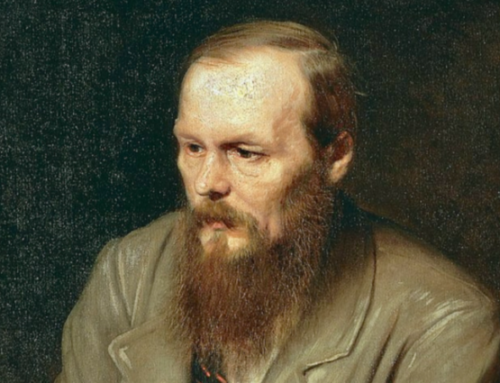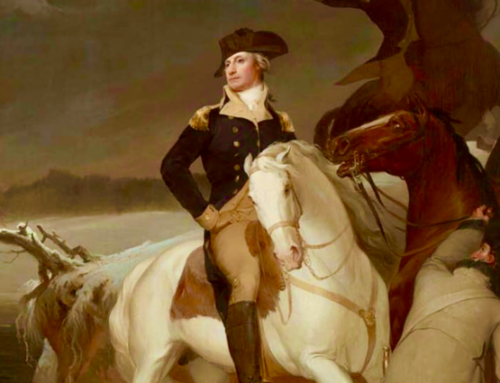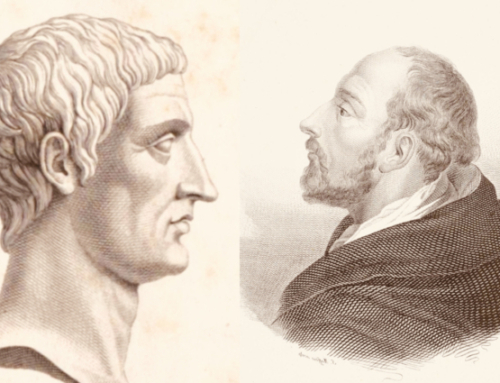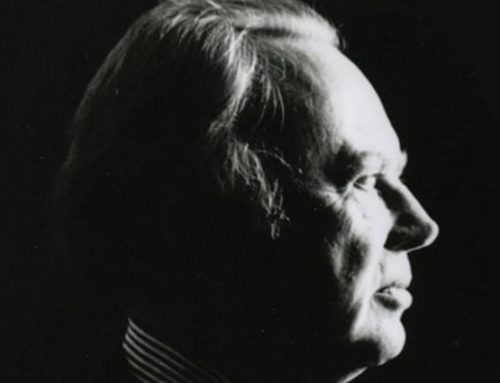Immediate popular majorities do not bestow greatness on statesmen. Rather, it is the longview of history and experience that will be the arbiters of the place each of our presidents will ultimately find.
The office of the presidency has always been controversial. Born of the Founders’ struggle to create a stable republican political order, it was to be an office that was largely above politics in a political system; a constitutionally limited office that to many resembled an embryonic monarchy; the living embodiment of a nation that had just rejected such trappings. It is at once the most democratic of political offices and at the same time the historically most often feared. It is an office riddled with the paradoxes of executive authority in a republican form of government. As a consequence of these paradoxes we have been led to both love and to hate the men who have occupied the office.
The presidency’s important place in the political system and central role in American history has made it an office ripe for particularly fierce ideological warfare. At the extreme, witness the role played by Lincoln’s ascension to the office in the South’s decision to secede from the very Union of which they had long been a vital part. At a less grave level, liberals and conservatives have often clashed on their respective perceptions of the presidency and the men who have served in it.
When it has been convenient to forwarding their progressive agenda, liberals have embraced presidential power with abandon. Beginning with FDR’s New Deal, for instance, liberals and progressives looked at the presidency as the engine for transforming the nation into a modern welfare state. As such, they were willing to invest it with immense political power—in the process unbalancing the political system that was so carefully constructed by a more prudent generation. That predilection continued on the Left until the late 1960s and early 1970s when they wholly abandoned their embrace of executive power in response to its perceived abuses during Vietnam and Watergate. In the wake of the Republican control of Congress in 1994, liberals again have returned to a more friendly embrace of the presidency and its prerogatives.
Conservatives, on the other hand, have generally understood with Publius that energy in the executive is a necessary element to an ordered and free society, and yet they have also traditionally maintained a healthy distrust of concentrated political power held anywhere—including in the White House. But such a prudent balance has not always held sway on the Right, as conservatives have not shown themselves immune from the tendency toward institutional partisanship.
At times, those in the conservative tradition have found themselves in a supporting role of the presidency and sitting presidents. The support for the establishment of the office demonstrated at the Founding by men like Washington, John Adams, and Alexander Hamilton is one such example. Another is the considerable support given to Ronald Reagan and his use of the powers of the office during the 1980s. On the other hand, conservatives have not always embraced an energetic use of executive power. In fact, it may well be more natural for the conservative mind to prefer a balanced constitutional system that necessitates an elected president to be primarily a counter-balance to a strong legislature—the more strictly republican authority. In the nineteenth century that most articulate of conservatives, the senator from South Carolina and former vice president, John C. Calhoun, eloquently warned of the dangers of executive power to the states and to the political system. He denied to the presidency any role in representing the legitimate voice of the American people.
Faced with the growth in presidential power and transference of large amounts of authority to the federal government during the administration of Franklin Roosevelt and after, conservatives in the twentieth century have echoed many of the earlier thoughts of people like Calhoun in seeking to reestablish a properly balanced constitutional government. Frank Meyer, for one, realized that a republic depends upon the maintenance of a healthy balance of powers but “[f]or a good part of this century that balance has been deeply disturbed—and always at the expense of Congress.” To address such a constitutional imbalance, James Burnham would write that “the prerogatives of Congress should be defended and restored, and its powers strengthened; that the executive should be curbed.”
Two new surveys of historians represent the continuation of the long liberal-conservative disagreement on questions of executive power and presidential greatness.* It has long been a favorite pastime of historians and journalists to comparatively grade those who have served in our nation’s highest office, but conservatives have seldom been asked to participate. Last winter The New York Times Magazine published the latest presidential survey by the well-known historian Arthur Schlesinger, Jr. who occasionally conducts and publishes such a poll with considerable fanfare. As he has in the past, Schlesinger again asked an overwhelmingly liberal Democratic cast of academics to grade the presidents. Indeed, in his recent study he goes so far as to include noted liberal Democrat politicians Mario Cuomo, former governor of New York, and Paul Simon, former senator from Illinois, without any offsetting Republicans. The results are as biased as the jury pool selected.
Among twentieth-century presidents, Franklin Delano Roosevelt earns a “great” ranking from the Schlesinger survey. John F. Kennedy and Lyndon Johnson, who extended FDR’s legacy of the big government welfare state, were rated “high average.” On the other hand, Ronald Reagan, the president who did more than any other to reverse the destructive legacy of that welfare state, was ranked at “low average” with the likes of Jimmy Carter and Gerald Ford. Even Clinton is ranked above Reagan in the Schlesinger survey—a sure sign of the ideological bias infecting the jury pool.
Because such polls are often the stuff of which interpretive history is made, and because presidents themselves often become highly concerned with the probable judgments given by historians, James Piereson of the John M. Olin Foundation and the Intercollegiate Studies Institute decided to conduct a survey of less liberally biased, yet highly distinguished, scholars in the hope the results would serve as a corrective to the flawed Schlesinger poll. The Institute released the results of its survey this past fall. Among the members of their jury were some of America’s top academics including Harvey Mansfield of Harvard University, Martin Anderson of The Hoover Institution, James Ceaser of the University of Virginia, Herman Belz of the University of Maryland, Forrest McDonald of the University of Alabama, Pulitzer prize-winning historian Walter McDougall, and William B. Allen, the Dean of James Madison College at Michigan State University.
 Interestingly, there is considerable agreement between the Schlesinger and ISI polls on ranking the presidents in the nineteenth century. Both groups agree that Jefferson, Jackson, and Teddy Roosevelt rank among the “Near Great” presidents while Pierce, Buchanan, Andrew Johnson, Harding, and Grant finish at the bottom of both surveys. Washington and Lincoln are favorites of both panels, but the Schlesinger jury elevates Franklin Delano Roosevelt to equal status with America’s Founding Father himself, whereas the ISI scholars clearly recognize Washington alone as the greatest president in history. The criteria for their judgments ranged from demonstrated fidelity to the Constitution to moral rectitude and sound domestic and foreign policy. As such, the Institute’s ranking of Washington is instructive and deserves further consideration.
Interestingly, there is considerable agreement between the Schlesinger and ISI polls on ranking the presidents in the nineteenth century. Both groups agree that Jefferson, Jackson, and Teddy Roosevelt rank among the “Near Great” presidents while Pierce, Buchanan, Andrew Johnson, Harding, and Grant finish at the bottom of both surveys. Washington and Lincoln are favorites of both panels, but the Schlesinger jury elevates Franklin Delano Roosevelt to equal status with America’s Founding Father himself, whereas the ISI scholars clearly recognize Washington alone as the greatest president in history. The criteria for their judgments ranged from demonstrated fidelity to the Constitution to moral rectitude and sound domestic and foreign policy. As such, the Institute’s ranking of Washington is instructive and deserves further consideration.
The ISI jurors demonstrated a keen understanding that the American presidency is an office both of action and of supreme secular symbolism. Where other nations, such as Japan and the United Kingdom, have moved to separate political power from offices long assumed to be held by the living embodiment of the nation, the United States continues to combine these essential roles in her presidents, sometimes to good effect, at other times not so successfully. On both counts of power and symbolic leadership, Washington provides a model of a great president and republican statesman. Executive power must be exercised with some degree of energy in any republic, lest order give way to chaos. But it must also be kept within bounds. Washington not only took appropriate actions as president, but in many ways he established the office’s very potential for power as well as its limits. Commenting on Washington’s central role in setting the proper parameters of the office, Marshall DeRosa reminds us that his greatness is not only due to what he did, but to what he didn’t do. And, in his policies he reflected the good sense of a new nation with strong roots in its past, as in his rhetoric he set the necessary tone for a free republican people.
But, presidents are more than just chief executives, they are also America’s chiefs of state. And so ISI’s panel of scholars saw the very way in which Washington enacted his role as president to be the key to his greatness. The Anti-Federalist pamphleteer The Federal Farmer noted the importance of having an individual standing as a symbolic representative of the internal cohesion and unity of any large group of people. For in any large body “there must be a visible point serving as a common center in the government, toward which to draw their eyes and attachments.” In his classic work The New Science of Politics political theorist Eric Voegelin explicated the fact that societies must erect symbols as part of their effort at self-understanding and to express the experience that “man is fully man by virtue of his participation in a whole which transcends his particular existence.”
The American presidency is one such symbol in the American political order and this is why men such as Alexander Hamilton and John Adams were so concerned to invest the office with some of the trappings of royalty. Indeed, the Senate originally wished to refer to the president as “His Highness the President of the United States, and Protector of the Rights of the Same,” but later compromised with the House in settling for the simple but still respectful “Mr. President.” It is an essential aspect of the office still today that it be carried out with the dignity and respect that is demanded by the head of state of a great nation. On this aspect of the office, Washington was really the indispensable man. As survey participant Forrest McDonald has written, “As a symbol of the Union, he could stimulate, at least for a time, the emotional attachments to the nation that normally requires centuries in the building.” But, beyond his beloved status in the populace and the reputation of Washington the general, it was the way in which he acted in office that was of such vital importance. He infused the office with a life-giving gravity by acting always with dignity and purpose. As a representative of his young nation he set the necessary precedents for a republican executive and the proper tone for a republican citizenry.
By comparison, most modern presidents fail to approach the mark set by the first and greatest of America’s chief executives. The modern president that most closely approximates the greatness of Washington is Ronald Reagan. Though the bias clearly evident in the Schlesinger survey puts Reagan in the same “Low Average” category as presidents like Carter, Clinton, Arthur, Taft, and Gerald Ford, the new ISI poll ranks Reagan as a “Near Great” president with the likes of Jefferson, Jackson, Teddy Roosevelt, and Dwight Eisenhower. In fact, Reagan finished behind only Washington and Lincoln among the greatest presidents in American history.
What justifies Reagan’s standing among the likes of the Founding Father and the Great Emancipator in the latest poll of historians? First and foremost, Reagan is beginning to get credit for setting in motion the forces that would bring down the Soviet Union and end the Cold War. Though liberals may not understand it, Reagan’s foreign policy of “peace through strength” significantly contributed to the defeat of the Evil Empire and the liberation of Eastern Europe. As Catholic University’s Phillip Henderson commented, Reagan “used the threat of the arms race to end the arms race and achieve real reductions in nuclear armaments on both sides.” Like great presidents before him, Reagan faced a crisis of the first order and provided the necessary leadership to protect the constitutional system and the nation.
Through his policies and his words, Reagan encouraged nearly a decade of prosperity at home and inspired a revolution in economic and political conservatism around the world. After its difficulties following Watergate, he helped rebuild his political party and popularize an intellectual movement that changed the course of late-twentieth-century America. Who is more responsible than Reagan for the Republicans breaking the forty-year Democratic stranglehold on the House of Representatives in 1994? Who would deserve more credit than Reagan for even Democrats like President Clinton coming to declare in the last few years that “the era of big government is over”? Quite simply Reagan changed the very terms of political debate in the United States.
In his famous “Farewell Address,” Washington set about instructing his new countrymen in the requirements of republican self-government. Among those “dispositions and habits which lead to political prosperity” he found to be morality and religion which he called “indispensable supports.” Similarly, Reagan also set out to affect a type of moral revolution with his own rhetoric—to reintroduce the American people to the Founding Fathers’ understanding of morality, religion, and virtue. Reagan took on the responsibilities of the most powerful office in the free world with cool confidence and a humble respect for the institution and its place in the American conscience. As did Washington, Reagan knew how to properly act in an office that melds political power with symbolic leadership, and he was able to rebuild the respect for the office that had been lost following Vietnam, Watergate, and President Carter’s attempts to strip the office of its more formal accompaniments. He understood the purpose of public ceremony and masterfully played the role of chief of state, encouraging a rebirth of American self- confidence that had been lost in the sixties and seventies. From his crisp military salute, to the inspirational courage and wit with which he took a would-be assassin’s bullet, Ronald Reagan was president as republican hero. Indeed, after a series of failed presidencies that led to serious discussions of the impending end of the institution as it had been known, Reagan may well have saved the presidency itself by demonstrating that it was still an executive office that could function among the complexities of the modern world.
If Reagan is regarded among the nation’s best, why is Clinton ranked with LBJ, James Buchanan, Jimmy Carter, and Andrew Johnson as one of the worst presidents in history? Again, a simple comparison with the model of George Washington is instructive. Unlike many voters in recent elections, the scholars comprising the ISI jury are highly critical of Clinton on questions of public and private character. Finding that he does not embody that sense of virtue which the Founders understood to be so necessary for the survival of free government, President Clinton is criticized for his personal distractions that have become so public and for his improprieties in office. After scandal upon scandal, and what is seen to be a very undignified way he has at times acted as president (one recalls the appearance on MTV when he resolved that most important national concern of “boxers or briefs?”), the ISI panelists contend Clinton has demeaned the office and contributed to a generally corrosive mood in the American body politic.
Where Washington took great efforts to act properly in office and to live his life in such a way as to edify his public and ameliorate the divisions in the union, Clinton is thought to be a president destructive to that unique blend of virtues, beliefs, and values that are so essential to the survival of republican self-government. Making decisions with what generally appears to be a complete lack of resolve either internationally or domestically, Clinton is seen to be a very poor inheritor of the office once held by the likes of Washington, Lincoln, Eisenhower, and Reagan.
As the new ISI survey demonstrates, the office of the presidency is one of supreme secular symbolism, and it is an office of vital energy in the American constitutional order. It has suffered under notoriously poor administrators. It has been home to the extremes of arrogance and deceit. It has endured scandal as well as extreme patriotic adulation. It has grown well beyond the limits a balanced and free government can prudently allow. Our method of electing our chief executives and their conduct in office often seem to border on a plebiscite rather than republican self-government. But whatever can be said of individual office holders or any given era, the institution of the presidency has endured.
In his recent history of the institution, ISI survey panelist Forrest McDonald observed that “though the powers of the office have sometimes been grossly abused, though the presidency has become almost impossible to manage, and though the caliber of the people who have served as chief executive has declined erratically but persistently from the day George Washington left office, the presidency has been responsible for less harm and more good, in the nation and in the world, than perhaps any other secular institution in history.” This is high but prudent praise for America’s highest political office.
Immediate popular majorities do not bestow greatness on statesmen. Rather, it is the longview of history and experience that will be the arbiters of the place each of our presidents will ultimately find. That said, it is still instructive to note that according to the latest survey of top scholars, Ronald Wilson Reagan is beginning to get his due—as is William Jefferson Clinton.
Republished with gracious permission from the Intercollegiate Review (Spring 1998).
The Imaginative Conservative applies the principle of appreciation to the discussion of culture and politics—we approach dialogue with magnanimity rather than with mere civility. Will you help us remain a refreshing oasis in the increasingly contentious arena of modern discourse? Please consider donating now.
The featured image is an official White House photo by Shealah Craighead of President Donald J. Trump arriving at Joint Base Andrews Air Force Base on Wednesday, August 21, 2019, in Maryland, en route Kentucky, courtesy of Wikimedia Commons.








Constitutional limitations on power are a good idea, but like most good ideas, rarely last beyond the first lawyer to find a way around them. This is why admonishments are made for “eternal vigilance” and so forth.
There is a quote, the provenance of which currently escapes me, but the essence of which is, “Both Heaven and Hell are absolute monarchies, the difference lying in the character of the King.” This has always been true, at least of our Presidents. As noted, both liberals and conservatives have been willing at times to cross the line of propriety for an increase of power, for the Present Crisis only, of course. (But they never seem to step back and restore the former boundaries, do they?)
Each side firmly believes that it can be trusted with Power, and The Other Side cannot. (sigh) Thus, tribalism fuels the worst of our partisan politics. “The bells of hell go ting-a-ling-a-ling for you but not for me…”
Withal, there are certain bounds of propriety which a gentleman does not cross, no matter his position. In personal or public life, a man elevated to the highest office (in theory) should be as Caesar’s wife, beyond reproach. We haven’t had that for a long time.
Yet, in spite of our failure to elect the best men, and in spite of the historically short time the US has been around, we seem to be one of the longest-lasting constitutional republics. My personal thinking is that it is not due to “limitations” on executive power, but on the separation of powers, which gives each branch the desire to maximize itself at the expense of the others. Thus countervailing power competitions have kept government within limits. Or, it did, until the rise of the Imperial Presidency and the realization of congressmen that they could advance together with the other branches nullified that ancient rivalry.
Livy’s account of the Roman Republic is instructive. It especially allows us Moderns to see why George Washington was compared to that other Great man who led his people to victory, and after retired to his farm. Neither did Washington build a Presidential Library to extol his own greatness, any more than did Cincinnatus.
We have a Great System. We need also, Great Men to govern it. We need such as sorely as we need our (ignored) Constitutional limits, Regrettably, I cannot see any modern Cincinnatus even just offstage, ready to step in, only moral pygmies who would sell their own grandmothers for a taste of power.